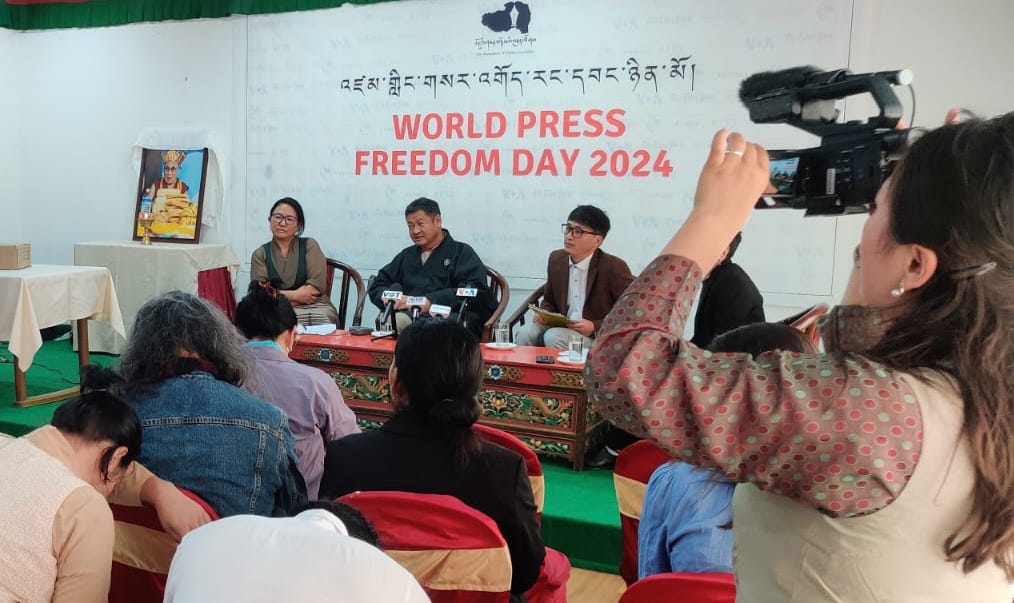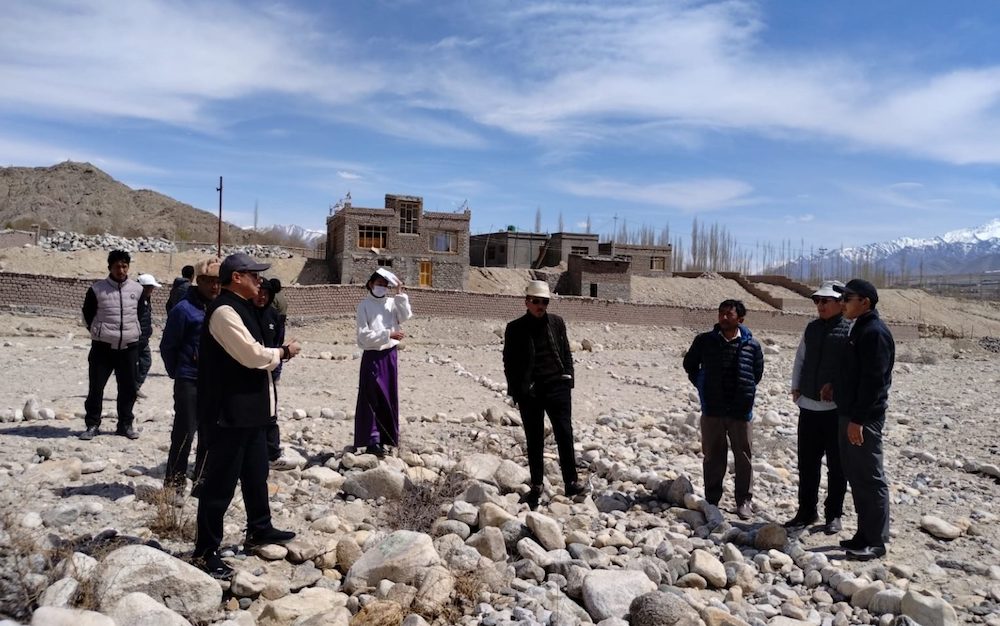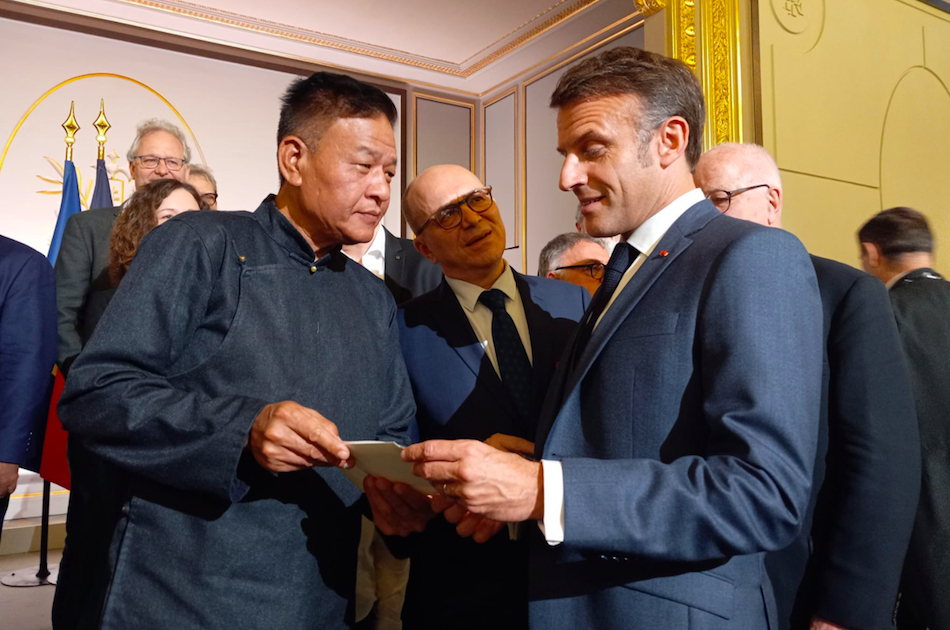By Phurbu Thinley
 Dharamsala, March 10: The exiled Tibetan leader His Holiness the Dalai Lama Thursday said he was ready to devolve his political authority to an elected leader.
Dharamsala, March 10: The exiled Tibetan leader His Holiness the Dalai Lama Thursday said he was ready to devolve his political authority to an elected leader.
The Dalai Lama, who is revered by Tibetans as the ultimate symbol of Tibetan unity and their freedom struggle, also announced that he would begin formal process of giving up the political role during the forthcoming session of the Tibetan Parliament-in-Exile, which is the highest legislative organ of the exile Tibetan administration.
“As early as the 1960s, I have repeatedly stressed that Tibetans need a leader, elected freely by the Tibetan people, to whom I can devolve power. Now, we have clearly reached the time to put this into effect,” the Tibetan leader said in his statement marking the 52nd anniversary of the 1959 Tibetan National Uprising.
“During the forthcoming eleventh session of the fourteenth Tibetan Parliament in Exile, which begins on 14th March, I will formally propose that the necessary amendments be made to the Charter for Tibetans in Exile, reflecting my decision to devolve my formal authority to the elected leader,” the Dalai Lama added.
The Dalai Lama has long described himself as a semi-retired person, saying he has already delegated much of the administrative and political decisions to the democratically elected Prime Minister of the Tibetan Government-in-Exile.
In recent months, the Tibetan leader has also announced his plans about contemplating “complete retirement” from political and administrative matters.
The Tibetan leader has, however, clarified that his retirement did not mean complete disassociation from the Tibetan people’s struggle for freedom.
The Dalai Lama says his decision to delegate his political authority to an elected leader was pursuant to the “highest priority” given soon after coming into exile in 1959 to establishing a system of governance for the Tibetan people fully based on democratic principles.
 The Dalai Lama’s decision has caused deep concerns among Tibetans both in and outside of Tibet.
The Dalai Lama’s decision has caused deep concerns among Tibetans both in and outside of Tibet.
In his statement today, the Dalai Lama acknowledged that had been receiving “repeated and earnest requests both from within Tibet and outside, to continue to provide political leadership”.
But the Tibetan leader said his “desire to devolve authority has nothing to do with a wish to shirk responsibility”.
“It is to benefit Tibetans in the long run. It is not because I feel disheartened. Tibetans have placed such faith and trust in me that as one among them I am committed to playing my part in the just cause of Tibet.
“I trust that gradually people will come to understand my intention, will support my decision and accordingly let it take effect,” the Dalai Lama said.
Tibet’s Prime minister in exile Prof Samdhong Rinpoche in his statement has described the Dalai Lama’s decision to relinquish his role as the political leader of Tibetan people as a “a major cause of concern” for Tibetans in and outside Tibet and urged the Dalai Lama to reconsider his decision.
“Great number of Tibetans in exile from the various settlements, organisations, monastic institutions and individuals and particularly many Tibetans from inside Tibet – collectively and individually – have been ardently supplicating His Holiness the Dalai Lama not to take such a step. We, the Kashag, would like to make the same request in the strongest terms,” Rinpoche said.
Rinpoche also urged the members of the exile parliament to treat the matter with “utmost importance” and to “think carefully to take the right path”.
Tibetan parliament has also recently submitted a memorandum to the Dalai Lama urging him him not to retire – either semi or fully – from the Tibetan leadership role.
Addressing media persons on the sideline of the 5nd anniversary of the Tibetan Uprising Day, the Tibetan Prime Minister further urged the Dalai Lama to postpone the retirement plans.
“We, the vast majority of the Tibetan people inside and outside still don’t feel competent to take over and to become independent of Dalai Lama. That is very difficult to think. So, we are still asking His Holiness to postpone it,” Rinpoche told reporters here.
The Charter of Tibetans in exile describes Dalai Lama as both the head of the Tibetan nation and of the Tibetan administration in exile.
Rinpoche, however, said Dalai Lama has not accepted the requests of the Tibetan people asking him not to step down.
“His Holiness’s response is very clear in his statement today. His Holiness has not accepted the requests. His Holiness hopes Tibetan people will understand in the long run,” Rinpoche said, responding to a media question on the Dalai Lama’s response to requests from Tibetan people asking him not to devolve his political leadership.
“We have to think in a very innovative way to accommodate the wishes of both His Holiness and the Tibetan people,” Rinpoche said, adding, “But we must find a way if His Holiness remains firm with his decision”.









